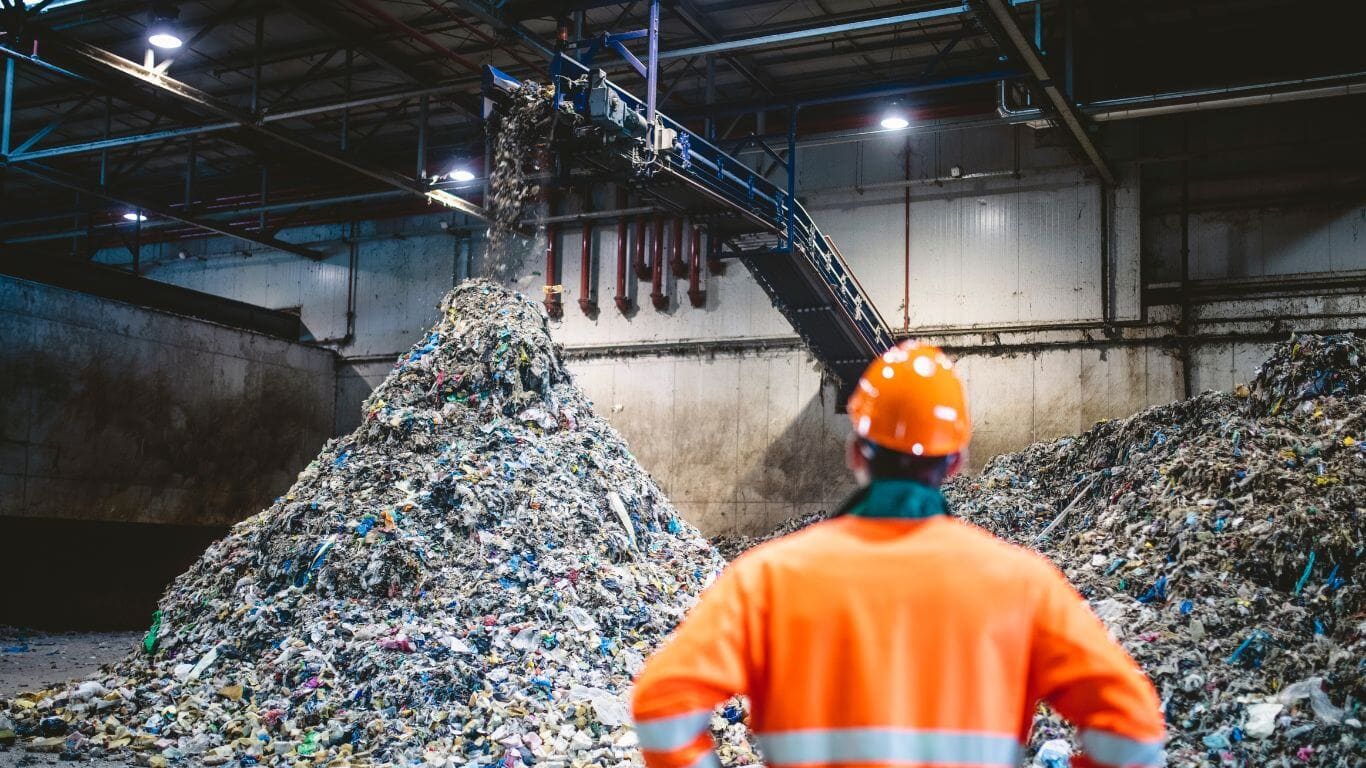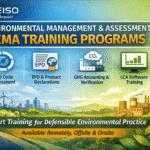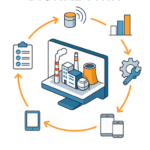openLCA Expert+ Training for Waste Management
This training program is offered remotely (online) via the Zoom app. We offer both one-on-one and group training. Pricing is per participant.
This training program is offered onsite and can be tailored to your company’s location outside Japan. We require a minimum number of participants. Pricing is per attendee. Please contact us for more information.
This off-site training program is conducted at DEISO in Tokyo. We require a minimum number of participants, and pricing is per attendee. Please contact us for more details.
For a comprehensive comparison of remote, on-site, and off-site training, please refer to this page.
Tip for Training Plans Comparison
Move your mouse cursor over any item of a plan with a dashed underline to check and read additional information with the “Feature Tooltip.”

openLCA Expert+ Training for Waste Management
Curriculum & Features
-
English Training Training is provided in English by an expert LCA trainer at the PhD level.
-
Fixable Training Scheduling Regardless of the Time Zone.
-
Free 2 hours after training follow-up Optional.
-
Optional Examination & Training Certificate (Paid) Certificate fees per trainee apply. Contact us for pricing details.
-
Extensive Training Intensive training for complete program understanding.
-
Accelerated Learning Approach Active learning approach accelerates understanding by tailoring instruction to individual styles, using discussions, interactive elements, demonstrations, practical examples, assignments, and trainee feedback.
-
Remote (Online) or in Person Choose your DEISO training delivery: online (remote), at your company's location in Japan, or international locations (overseas). Prices vary for each model, and a minimum number of trainees is required except for online training, which can be one-to-one- or one-to-group. A single trainee is sufficient for online training to deliver the chosen training program.
-
Training at the Client's Physical Location Outside of Japan Choose your DEISO training delivery: online (remote), at your company's location in Japan, or international locations (overseas). Prices vary for each model, and a minimum number of trainees is required except for online training, which can be one-to-one- or one-to-group. A single trainee is sufficient for online training to deliver the chosen training program.
-
In-Person Training at the Client's Physical Location in Japan A minimum number of trainees is required. Please contact us.
-
Case Studies: 4
-
Basic Case Study
-
Advanced Case Study
-
Production Case Study Case studies in Life Cycle Assessment (LCA) typically fall into two main categories: "production/manufacturing" and end-of-life (EoL) or waste management. The latter focuses on managing the waste consumers generate after product use reaches its EoL. In this module, you will delve into a case study centered on "production."
-
Waste Management Case Study with Global Parameters A parameterized and complete waste management case study of downstream waste "municipal solid waste management (MSW).
-
Building and Connecting Multiple Models Developing and Integrating Multiple Models entails mastering the creation of "sub-models" and intertwining them to form a primary model. Picture each "sub-model" as distinct stages in the lifecycle of a product, such as production, transportation, usage, and waste management. Throughout this module, you'll grasp the fundamental principles of crafting multiple models tailored to various purposes.
-
Model Local & Global Parameters Discover how to parameterize your SimaPro model using local and global parameters to accommodate potential future data changes. Facilitate scenario analysis and development, support eco-design modeling, and compare different products and technologies. Learn how to incorporate these parameters into your models and update them as new data becomes available, enhancing flexibility and professionalism while saving valuable time.
-
Training on Advanced Features Throughout this training journey, you will acquire expertise in leveraging the advanced features of openLCA modeling. These features will enable you to conduct comprehensive LCA modeling and analysis and enhance productivity by saving time.
-
Basic: System Process vs Unit Process: Advanced Theory & Practice Some databases provide "Unit Process" and "System Process" options. Typically, databases like ecoinvent offer two process types: Unit Process and System Process. This module delves into each type's theoretical, technical, and mathematical aspects, explaining their differences and the usage scenarios. Further, this module aims to simplify the complexity of these concepts for the trainee(s).
-
Advanced: System Process vs Unit Process: Advanced Theory & Practice Some databases provide "Unit Process" and "System Process" options. Typically, databases like ecoinvent offer two process types: Unit Process and System Process. This module delves into each type's theoretical, technical, and mathematical aspects, explaining their differences and the usage scenarios. Further, this module aims to simplify the complexity of these concepts for the trainee(s).
-
Getting Started with openLCA A detailed walkthrough of the openLCA user-friendly interface and its functions menu is provided. The software panels ("panel-by-panel") are explained in detail. This module also covers common tasks such as creating new projects, opening existing ones, and exploring openLCA's various functions. This includes understanding interface options, tools, data organization, and their overall structure. Productivity tips are also provided for using the main interface.
-
Database Creation Discover the process of establishing and importing customized processes into a blank database.
-
Combining Databases Master the technique of merging multiple databases into a unified single database.
-
Importing/Restoring Databases Importing or restoring databases is a crucial skill in openLCA, essential for linking new databases or backing up existing ones.
-
Importing databases from exported zolca-Files openLCA offers diverse file format options for importing and exporting data. In this module, you'll explore importing and exporting data using these formats, understanding their unique characteristics, and identifying when to use each specific format based on the requirements of your project.
-
Exporting Data: ILCD ZIP-file Format
-
Exporting Data: Excel Format
-
Exporting Data: EcoSpold File Format
-
Exporting Data: CSV-Matrix
-
Advanced Database Import From ecospold, Excel, ILCD, SimaPro CSV, and JSON-LD formats formats.
-
Database Elements Flows, process, documentation, categorization, functional units (reference units/amounts), process input/output, etc.
-
Understanding Database Documentation It's strongly advised to read process documentation before selecting it for a certain project. Simply relying on process names without consulting documentation is not recommended. Users are expected to carefully assess process documentation to determine its suitability for the specific case study under analysis. This module will cover effectively reading process documentation and identifying key information that should always be verified.
-
Basic: LCA Results Export an Analysis in Excel Depending solely on results, analysis in openLCA needs to be advanced. Supplementing with Microsoft Excel is strongly advised for comprehensive study. This module will teach you to export LCA results to Excel for in-depth analysis. You'll learn to format, filter, score, and visualize results effectively within the Excel environment, enhancing your analytical capabilities.
-
Advanced: LCA Results Export an Analysis in Excel Depending solely on results, analysis in openLCA needs to be advanced. Supplementing with Microsoft Excel is strongly advised for comprehensive study. This module will teach you to export LCA results to Excel for in-depth analysis. You'll learn to format, filter, score, and visualize results effectively within the Excel environment, enhancing your analytical capabilities.
-
Generate, Prepare, and Share Interactive LCA Results in HTML File Format This module will guide you through generating, preparing, and sharing interactive LCA results in HTML format directly from the openLCA model environment. You'll discover how to customize reports, tables, and figures and interpret the results effectively. By mastering these techniques, you can share detailed reports with clients, supervisors, or team members without relying on a word processor to finalize your results.
-
Flow Properties
-
Creating New Processes
-
Process Inputs/Outputs Mastering process input and output is crucial for comprehending the material and energy inputs and other inputs of each process, along with its main product and by-products of the outputs. This module will delve into understanding emissions to and from nature, the technosphere, and emissions mediums such as water, air, and soil. This training module will cover the practical application of these concepts to SimaPro processes.
-
Modeling Aspects & Principles
-
Understanding Life Cycle Impact Assessment LCIA Methods
-
Importing LCIA methods
-
Creating Product Systems openLCA Specific technical feature.
-
Model Graph openLCA Specific technical feature.
-
Normalization LCA Specific technical feature.
-
Weighting LCA Specific technical feature.
-
Grouping LCA Specific technical feature.
-
Basic: Inventory Results Life Cycle Inventory (LCI) Analysis. The second Phase of the LCA Framework.
-
Advanced: Inventory Results Life Cycle Inventory (LCI) Analysis. The second Phase of the LCA Framework.
-
Minpoing Modeling LCA results can be carried out at the midpoint level, including environmental impact categories such as "climate change," "acidification potential," "human health potential," etc. These categories (15+ on average based on the LCIA method) are called "midpoint impacts."
-
Endpoint Modeling LCA results can be carried out also at the "endpoint" level where the midpoint impact categories (15+ on average) can be aggregated to single 3-4 indicators such as "damage to the ecosystem," damage to health," and damage to resources." This aggregation is called "endpoint modeling."
-
Basic: Impact Analysis Life Cycle Impact Assessment (LCIA) Analysis. The third Phase of the LCA Framework.
-
Advanced: Impact Analysis Life Cycle Impact Assessment (LCIA) Analysis. The third Phase of the LCA Framework.
-
Basic: Results Interpretations LCA Specific of the fourth phase of the LCA framework.
-
Advanced: Results Interpretations LCA Specific of the fourth phase of the LCA framework.
-
Process Contribution Analysis openLCA Specific technical feature.
-
Database Update, Maintenance, and Backup
-
openLCA Projects Management and Backups
-
openLCA Nexus Databases
-
Product (Scenario) Comparison
-
System Process Modeling
-
End of Life Modeling (EOL)/Material Flow Logic
-
EoL Modeling: Opposite Approach
-
Transportation Modeling
-
Basic: Hotspot Analysis/Weak Point Analysis in Excel Hotspot analysis, a fundamental aspect of Life Cycle Assessment (LCA), aids in pinpointing weak points or areas of concern within a product's life cycle. By identifying these hotspots, LCA practitioners can prioritize efforts to mitigate environmental impacts and optimize sustainability. This analysis enables stakeholders/LCA analysts to focus resources on improving processes or materials that contribute most significantly to ecological burdens, leading to more informed decision-making and ultimately fostering the development of more sustainable products and systems.
-
Advanced: Hotspot Analysis/Weak Point Analysis in Excel Hotspot analysis, a fundamental aspect of Life Cycle Assessment (LCA), aids in pinpointing weak points or areas of concern within a product's life cycle. By identifying these hotspots, LCA practitioners can prioritize efforts to mitigate environmental impacts and optimize sustainability. This analysis enables stakeholders/LCA analysts to focus resources on improving processes or materials that contribute most significantly to ecological burdens, leading to more informed decision-making and ultimately fostering the development of more sustainable products and systems.
-
Basic: Monte Carlo Simulation Monte Carlo simulation, a key aspect of uncertainty analysis in LCA, involves repeatedly running models using random input values from specified probability distributions. This method accounts for uncertainties in LCA inputs and yields probability distributions of outputs, providing a comprehensive understanding of potential outcomes. By quantifying uncertainties, Monte Carlo simulation enhances the reliability of LCA results, facilitates informed decision-making, and improves the accuracy of environmental assessments, ultimately leading to more robust and defensible conclusions.
-
Advanced: Monte Carlo Simulation Monte Carlo simulation, a key aspect of uncertainty analysis in LCA, involves repeatedly running models using random input values from specified probability distributions. This method accounts for uncertainties in LCA inputs and yields probability distributions of outputs, providing a comprehensive understanding of potential outcomes. By quantifying uncertainties, Monte Carlo simulation enhances the reliability of LCA results, facilitates informed decision-making, and improves the accuracy of environmental assessments, ultimately leading to more robust and defensible conclusions.
-
Sensitivity Analysis with openLCA Parameters & MS Excel Sensitivity analysis in LCA evaluates the impact of varying parameters on study outcomes, identifying influential factors and their effects on the results' reliability. Sensitivity analysis enhances the credibility and robustness of LCA findings by systematically testing input variables, such as data uncertainties or methodological choices. It enables stakeholders to understand the significance of assumptions and uncertainties, aiding informed decision-making in sustainable product development and policy formulation.
-
Life cycle Costing (LCC) Environmental Life Cycle Costing (LCC) assesses the total costs associated with a product or service throughout its life cycle, considering environmental impacts alongside financial expenses. It evaluates expenses from resource extraction to disposal, highlighting sustainable choices that minimize environmental harm and reduce long-term costs. LCC integrates environmental factors into traditional life cycle cost analysis to promote eco-friendly decision-making.
-
Sensitivity Analysis with openLCA Parameters & MS Excel
-
Sanitary Landfill Modeling
-
Unsanitary Landfill Modeling
-
Composting Modeling
-
Biogasification Modeling
-
Waste Transportation Modeling
-
Incineration Modeling
-
Recycling Modeling Modeling
-
Energy Recovery Modeling
-
Open Dump Modeling
-
Waste Burning Modeling
-
Full Waste Management case Study with Parameters
-
Optional: Social Life Cycle Assessment (S-LCA) for Social LCI database Owners ONLY
-
Optional: Social Life Cycle Assessment (S-LCA) for Social LCI database Owners ONLY
Life Cycle Assessment (LCA) software, openLCA, is free and open-source. There is no licensing fee associated with this open-source software (www.openlca.org). The open-source nature of the software makes it ideal for analyzing a large amount of data. Various initiatives in industry and academia have made it affordable to perform full LCAs. Two types of training are available from DEISO for open LCA: the “basic” and the “advanced.” Both classes offer training to enable trainees to conduct complete LCAs. Therefore, the training programs cover all aspects of openLCA and help you better understand its application and data. The two programs differ, however. It offers an “advanced” learning experience, as its name implies. Various topics and themes are discussed. You will be able to do the following after completing the training:
- Using OpenLCA, you can perform LCA on computers running Windows, macOS, and Linux. Some of the databases and data sets offered by OpenLCA are for purchase and some are free. Data sets totaling 100,000 can be accessed.
- In addition to SimaPro, GaBi, and Umberto, it competes with commercial LCA tools. Despite its essential differences, it is one of the cheapest LCA software on the market because it is free to download.
- Quickly and accurately calculate your Sustainability and Life Cycle Assessments.
- An in-depth analysis of computation and analysis outcomes is provided; the primary factors are identified.
- Utilize process, flow, and effect categories to visualize outcomes and impacts across the life cycle.
- Export and import capabilities are best-in-class; sharing models are simple.
- The life cycle model aims to integrate life cycle costing and social evaluation seamlessly.
- User-friendly; multilingual user interface; powerful, fast, and efficient
- In addition to its low total cost of ownership, ease of installation and use, tools for professional modeling and team collaboration, and full transparency, OpenLCA is an excellent choice for industry use.
- As a result of its low total cost of ownership, openLCA has proven to be an excellent option for LCA footprints in consulting. Using the free program, you can share your life cycle model with customers, reviewers, and quality assurance personnel.
- openLCA is used in many university lectures throughout the globe, and it is also related to research.
- openLCA is ideal for research and students.
Share this:
- Email a link to a friend (Opens in new window) Email
- Share on LinkedIn (Opens in new window) LinkedIn
- Share on X (Opens in new window) X
- Share on Facebook (Opens in new window) Facebook
- Share on WhatsApp (Opens in new window) WhatsApp
- Share on Reddit (Opens in new window) Reddit
- Print (Opens in new window) Print
- More











